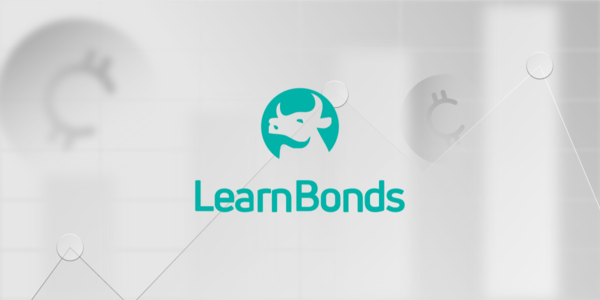Best South Africa Forex Brokers for 2026
Trading forex is hugely popular with traders around the world, and South Africa is not different. But to get the most out of trading currencies, you need the right brokerage for the job. Some South Africa forex brokers are specifically built to give you the tools you need to succeed, while others simply offer currencies as an afterthought to other types of trading.
To help you find the best forex brokers in South Africa, this article reviews our top picks for 2026, all of which offer low fees, plenty of trading options and a good range of trading tools.
In addition, we’ll explain everything you need to know about choosing the right forex broker for you.
-
-
What is a Forex Broker?
Forex brokers are companies that provide a platform through which traders can access the international forex exchange markets. By doing so, a forex broker makes it possible for a trader to open and close currency trades.
South Africa forex brokers can be independent platforms offering their services to smallholder currency traders or large investment banks that provide the service to institutional investors such as hedge funds and smaller commercial banks. Most brokers carry out their operations online and integrate all the resources needed by traders to make informed decisions. These include analysis tools,, technical indicators, market data updates, financial news, risk management tools, and leverage.
A forex broker earns in either of these two ways – or both. First is the bid-ask spread of every currency pair traded on their platform. There is no standard spread for forex brokers in South Africa, and it varies from one platform to another. Secondly, forex brokers may impose a fixed or variable commission (fee) for every trade executed on their platform.
What Makes a Good Forex Broker?
When comparing South Africa forex brokers, you have to take into account a host of security, operational, and regulatory measures. A good forex broker meets the following criteria at a minimum:
- Regulation: Every good forex broker is adequately licensed by different regulatory authorities and adheres to all the security measures stipulated by the operating license. These include encrypting user data and maintaining segregated bank accounts for client funds.
- Advanced trading platform: A good forex broker should also work consistently towards improving their trading platform. They should include updated trading, market analysis, and risk management tools while maintaining the fastest order execution speeds and supporting a reasonable number of currency pairs.
- Considerate pricing model: The good forex broker must also be considerate with their fees. In the recent past, most brokers have abolished trade commissions and lowered their bid-ask spreads.
- Readily accessible: Registering a trading account with a good forex broker should also be easy and straightforward. They should also make it possible to access the account on multiple devices like web trader, desktop and mobile apps on both proprietary and conventional trading platforms like MT4/5.
The Best South Africa Forex Brokers for 2026
1. Plus500 - Best for Low-Cost Forex Trading
For the widest selection of currencies to trade at the lowest cost, we recommend Plus500. This brokerage has CFDs for a whopping 70 currency pairs, including a number of infrequently traded exotics that may offer unique opportunities for profit. Even better, these exotics trade on leverage up to 200:1 for most currency pairs. Major and minor currency pairs can be traded at leverage up to 300:1.
We also like Plus500 because it’s inexpensive. Spreads on most major currency pairs are in the neighborhood of 0.1% or cheaper. This platform also doesn’t charge excessive interest for holding leveraged CFD positions overnight. For many currency CFDs, the overnight funding rate was less than 0.008%. That’s a huge advantage if you want to trade forex on leverage over a period of weeks rather than days.
Where Plus500 falls somewhat short of the mark, though, is in its research tools. The platform comes with a built-in charting system, but it’s fairly basic. You won’t find a huge variety of technical studies or strategy development capabilities, which can hold back more advanced traders.
On the other hand, charting in Plus500 is very user-friendly, so this broker may be a suitable choice for many beginner and intermediate forex traders. Ths broker also offers a mobile app and PayPal support, which is a plus.
- Currency Pairs: 70
- Demo Account: Yes
- Trade Commissions: No
- Research Tools: Basic charts
- Minimum Deposit: £100 (ZAR 2160)
Our Rating
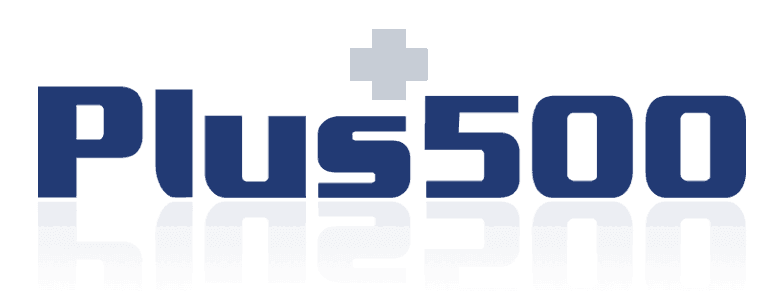
- CFDs for 70 forex pairings
- Low-cost spreadse
- Up to 300:1 leverage
- Only basic charting tools
80.5% of retail investor accounts lose money when trading CFDs with this provider.2. AvaTrade - Up to 1:400 Forex Leverage
If you’re looking to create large positions with relatively little cash to hand, AvaTrade is the best forex broker to use. This platform offers leverage up to 400:1 for most major and minor currency pairs. Even when trading exotic pairs, you can get leverage of 50:1 or higher. The amount of money you need to keep in your account is relatively low as well for leveraged CFD trades, at just 0.25%.
Another notable thing about AvaTrade is that this broker offers options trading in addition to CFD trading for forex. Your selection of currencies to trade is slightly limited; you can trade options for 42 forex pairs, compared to 55 for CFD trading. But, that still includes options for all the major and minor currency pairs, and AvaTrade will let you take positions with leverage up to 100:1 for many contracts.
We also like AvaTrade because it offers significantly more advanced research tools than many other low-cost, commission-free forex brokerages. AvaTrade has its own charting software, for example, which is easy to use and includes a wide variety of technical studies. For more experienced forex traders, AvaTrade also comes with access to MetaTrader 4. This software enables you to create custom strategies, backtest them, and automate them to optimize your trading.
While there’s not much to dislike about AvaTrade, South African traders will want to note that this broker does not allow you to fund your account with Rand. Instead, you’ll need to first convert your funds to US Dollars or Euros.
- Currency Pairs: 55 (42 for options trading)
- Demo Account: Yes
- Trade Commissions: No
- Research Tools: Advanced charts, MetaTrader 4
- Minimum Deposit: $100 (ZAR 1706)
Our Rating

- Up to 400:1 leverage
- Options trading
- Supports MT4
- Must fund your account with US Dollars or Euros
There is no guarantee you will make money with this provider.3. FinmaxFX – Best MT5 trading platform
FinmaxFX is a new forex broker, having launched in 2019, but it's already proved a popular option among many traders.
This platform provides access to 58 currency pairs, and you can trade forex with up to 1:200 leverage. All trading on FinmaxFX takes place on the highly advanced MetaTrader 5 platform, which provides all the tools you'll need, as well as access to trading bots and forex EAs. There's also some decent educational resources, including weekly webinars.
When it comes to pricing, there's no commission at FinmaxFX. However, the spreads are slightly more expensive than at some other brokers, starting at 3 pips.
You can get started at FinmaxFX with a $100 (around ZAR 1700) deposit, and there's a variety of payment options supported, including several e-wallets. One thing to note is that while FinmaxFX is a secure broker, but it isn't licensed by a tier-one regulatory body.
- Currency Pairs: 58
- Demo Account: Yes
- Trade Commissions: No
- Research Tools: MetaTrader 5
- Minimum Deposit: $250 (ZAR 4266)
Our Rating

- Supports MT5
- Up to 1:200 leverage
- Weekly live webinar
- No tier-one license
- High spreads
There is no guarantee you will make money with this provider.4. IG – Great for Research and Educational Tools
IG is a UK forex broker that was launched way back in 1974, making, it is one of the most trusted platforms in the market, with more than 178,000 users. This forex broker is heavily regulated and licensed in multiple jurisdictions, so it's a very safe and secure platform.
IG offers a fantastic range of forex trading options, with 80 currency pairs available, including plenty of minors and a good range of exotics. You can trade with up to 1:50 leverage and there's no commission to worry about. With spreads starting from 0.6 pips, this is one of the most affordable South Africa forex brokers out there.
When it comes to trading, you can choose from IG's excellent proprietary platform or several other options, including MT4 and ProRealTime, all of which provide access to an excellent range of advanced forex trading tools. IG also offers an impressive education and research department.
You can get started on IG with a £250 deposit (around ZAR 5390), and it accepts a variety of payment methods, including PayPal. If you want to trade on your mobile, you can download the impressive IG app for iOS and Android.
- Currency Pairs: 80
- Demo Account: Yes
- Trade Commissions: No
- Research Tools: Advanced charts, MetaTrader 4, ProRealTime
- Minimum Deposit: £250 (ZAR 5390)

- 80 forex pairs
- Lots of advanced charting tools
- Very tight spreads
- Imposes inactivity fees
There is no guarantee you will make money with this provider.Choosing the Best Forex Broker in South Africa
Getting the best brokerage for your needs is a key aspect of trading currencies successfully. To help you decide which brokerage is right for you, let’s take a closer look at some of the essential things you should consider.
Which Currencies Can You Trade?
The first thing to look at when choosing a forex broker is what currency pairs a prospective broker offers for trading. Currency pairs are typically classified into three categories based on how frequently they are traded. These are:
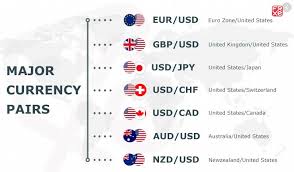 Major pairs are the seven most frequently traded currency pairs. For example, the US Dollar-British Pound and US Dollar-Japanese Yen are considered major pairs. Just about every brokerage that offers forex trading in some form offers the major pairs, and they make up more than half of all forex trades on a day to day basis.
Major pairs are the seven most frequently traded currency pairs. For example, the US Dollar-British Pound and US Dollar-Japanese Yen are considered major pairs. Just about every brokerage that offers forex trading in some form offers the major pairs, and they make up more than half of all forex trades on a day to day basis.- Minor pairs are less frequently traded than the major pairs, but they still account for a large portion of all forex trades. Typically, minor pairs cross the US Dollar with a lesser-known currency or cross the other currencies in the major pairs with each other. All three of the brokerages that we highlighted offer trading on all minor currency pairs, but not all South Africa forex brokers do.
- Exotic pairs cover crosses between minor currencies. The South African Rand, when traded with most currencies other than the US Dollar, is considered an exotic. Brokerages vary in which exotic pairs they offer, and you’ll need to be careful when trading exotics as they often have relatively low liquidity.
CFDs, Options, or Both?
Most forex brokers offer currency trading using CFD contracts. CFDs allow you to speculate on the price of a currency relative to its paired currency without actually owning either currency directly. The advantage of this type of trading is that you don’t have to take possession of the currency you’re trading, there are no wire transfers and no regulatory issues when trying to move money across international borders. In addition, CFDs enable you to trade with leverage, which is critical for forex trading since price changes are often on the order of a tenth of a percent or less.
Some of the best forex brokers in South Africa, like AvaTrade, also offer forex options. Unlike CFDs, options have an expiration date. That introduces time as a major factor in determining the value of your position. So, you need to correctly predict not only whether a price change will occur, but also when it will occur. Options are already leveraged, but some brokers that let you trade forex options will allow you to leverage them further.
How much Leverage Can You Use?
Leverage allows you to make larger trades by effectively borrowing capital from our broker, but the amount of leverage on offer varies a lot depending on which trading platform you go with. For example, while some South Africa forex brokers limit leverage to 1:50, meaning a ZAR 100 would be worth ZAR 5,000, other brokers offer all the way up to 1:400.
It’s also worth noting that many brokerages offer different spreads and maximum leverage for major, minor, and exotic currency pairs. For example, you may be able to trade with leverage up to 400:1 for major currency pairs at AvaTrade, but the broker will only allow leverage up to 300:1 for many exotic currency pairs. Spreads also typically increase for exotic pairs, since they are less liquid.
What Tools Does It Come With?
Research and analysis tools play a major role in your ability to spot opportunities forex trading early and act on them. Many brokerages include technical charts to help traders with forex research, but the quality of these charts varies quite a bit. Brokers like Plus500, for example, offer mostly basic charts that are beginner-friendly but don’t include many technical studies. AvaTrade, on the other hand, offers a much more powerful charting interface as well as gives traders access to the popular MetaTrader 4 software.
Newsfeeds, analyst reports and social trading features are also useful tools for forex trading. These can provide critical insight into changing market conditions or sentiment around a particular currency, which will in-turn affect its price.
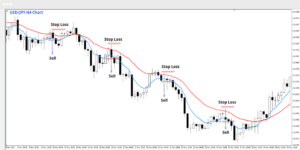
How Much Does It Cost?
Of course, the cost is a major consideration when you’re choosing a forex broker. To start with, it’s a good idea to look for a broker that doesn’t charge trading commissions. These can add up quickly, especially if you typically place many smaller trades to scale in and out of positions.
However, trade commissions aren’t the only fees that brokerages charge. Most brokers make money on the spread, and this can quickly add up if the spreads are high. The brokerages we highlighted charge spreads of around 0.1% or less for major currency pairs, although the spreads may be higher for less liquid exotic currency pairs.
Watch out for additional fees and charges as well. If you plan to trade with leverage, you’ll want to check how much a prospective broker charges as a percentage of your trade to hold your position overnight. Some brokers also assess fees for withdrawals or for inactivity, and you’ll want to be sure to know how to avoid these fees if at all possible. Keep in mind that even charges that seem small can add up over time.
What Payment Methods Can You Use?
Different South Africa forex brokers accept different payment methods, so you need to find a platform that supports your preferred option. For example, while most accept bank cards and bank transfers, e-wallets like PayPal, Neteller and Skrill are slightly less widely available.
You should also check whether your broker accepts Rand payments or whether you have to deposit in another currency and therefore incur conversion costs. We’d also recommend choosing forex brokers that have low banking fees.
Want to learn more about other types of trading? Check out our guides to how to buy Bitcoin and Bitcoin trading in South Africa.Leverage at South Africa Forex Brokers
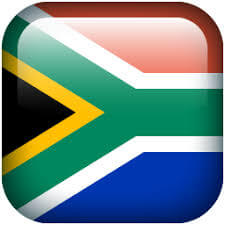
Leverage allows you to make larger trades by effectively borrowing capital from your broker. For example, a 1,000 Rand trade with 1:10 leverage applied is worth 10,000 Rand.
South Africa residents are not restricted in the amount of leverage they can apply when trading forex. Instead, this will be determined by your chosen broker. In most cases, forex brokers will offer you leverage of no more than 30:1 if you are just starting out. After you show that you have the capacity to trade leverage in a risk-averse manner, you may be offered higher limits.
There are some high leverage brokers out there with significantly higher limits. You should always tread carefully with leverage, as there’s the risk you could incur significant losses. Make sure you do plenty of research into the forex market and don’t risk more than you can afford.
Conclusion
Finding the best broker for trading forex in South Africa is essential to success. Forex markets move fast, so you need to have access to critical tools and be able to place trades without sacrificing profit to excessive fees. On top of that, your broker needs to offer a wide range of forex pairs so that you can take advantage of opportunities in any currency, and you’ll want to find a broker that charges affordable fees for its services.
FAQs
Can I use South African Rand to trade any currency pairs?
As long as your brokerage account is funded, you can trade CFDs or options for any currency pairs that your broker offers. You don’t need to convert money in your account to one of the currencies in the pair you want to trade. Note that some brokers, including AvaTrade, only accept US Dollars or Euros for funding your trading account.
Do forex CFD contracts or options contracts expire?
Forex CFDs typically expire at the end of each month, but you don’t need to worry about this expiration date. At the end of the month, your broker will automatically roll your contract over into the next month’s CFD contract for the same currency pair. Options, on the other hand, have a hard expiration date. The value of your options contract will vary significantly according to how much time remains until expiration.
If my brokerage offers leverage, do I have to trade with leverage?
Many brokers offer leverage when trading forex CFDs. But, you don’t necessarily have to trade with leverage. Most forex traders use some amount of leverage, since forex price changes are typically very small—on the order of one-tenth of a percent. Leverage can enable you to turn a 0.1% price change into a 10% return.
How much money do I need to start trading forex?
You should have at least several thousand Rand to start trading forex. This ensures that you will be able to meet the minimum deposit requirement of your brokerage, as well as meet margin requirements if you want to trade with leverage.
Alan Draper Lewis
View all posts by Alan Draper LewisAlan is a content writer and editor who has experience covering a wide range of topics, from finance to gambling.
Latest News
WARNING: The content on this site should not be considered investment advice and we are not authorised to provide investment advice. Nothing on this website is an endorsement or recommendation of a particular trading strategy or investment decision. The information on this website is general in nature, so you must consider the information in light of your objectives, financial situation and needs. Investing is speculative. When investing your capital is at risk. This site is not intended for use in jurisdictions in which the trading or investments described are prohibited and should only be used by such persons and in such ways as are legally permitted. Your investment may not qualify for investor protection in your country or state of residence, so please conduct your own due diligence or obtain advice where necessary. This website is free for you to use but we may receive a commission from the companies we feature on this site.
Copyright © 2022 | Learnbonds.com
We use cookies to ensure that we give you the best experience on our website. If you continue to use this site we will assume that you are happy with it.Scroll Up



